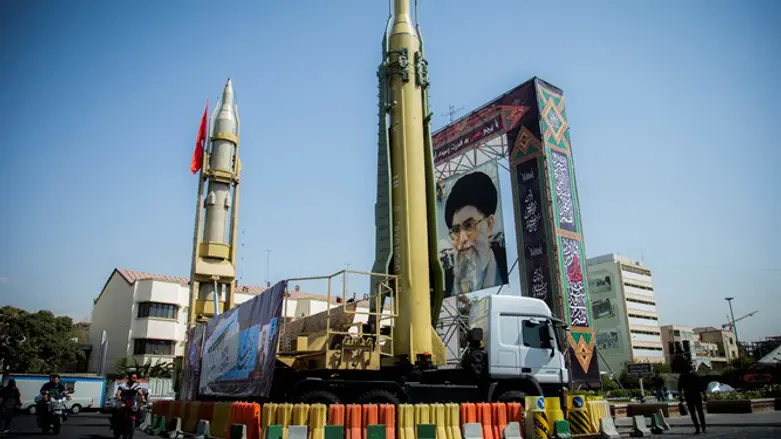
Iran's national army on Friday began exercises near its border with Azerbaijan, The Associated Press reported, citing state TV.
Artillery, drones and helicopters will participate in the drills, the report said, without elaborating on how long they would last or where exactly they would be held.
The exercises come amid escalating tensions along the border. Iran is wary of Azerbaijan in particular for its deep military cooperation with Israel, and on Thursday voiced its concerns to Azerbaijani ambassador in Tehran Ali Alizadeh.
“We do not tolerate the presence and activity against our national security of the Zionist regime, or Israel, next to our borders,” Foreign Minister Hossein Amir-Abdollahian said, according to AP. “And we will carry out any necessary action in this regard.”
Amir-Abdollahian described relations between Iran and Azerbaijan as “important,” but insisted Iran had the “right” to hold the exercises.
Iran holds military exercises several times a year to demonstrate its readiness to respond to any foreign aggression. However, while the Islamic Republic regularly boasts of its military achievements it does not always provide proof of its accomplishments.
In June of 2018, a senior Iranian military official said that the country’s Bavar 373 air defense system will be put into action “in the near future”, adding Iran has made great progress in designing and developing air defense systems.
In 2017, Iran’s Defense Minister claimed the country had developed a tank named "Karrar", which is supposedly equipped with an electro-optical fire control system and laser range-finder and is capable of firing at both stable and mobile targets day or night.
Iran also regularly threatens to close the Strait of Hormuz, the passageway for nearly a third of all oil traded by sea.
Friday’s drill comes amid tensions between Iran and Western powers over the 2015 nuclear deal.
Iran has gradually scaled back its compliance with the 2015 deal in response to former US President Donald Trump’s withdrawal from the agreement in May of 2018.
The previous government, headed by former President Hassan Rouhani, had been holding indirect talks with the US on a return to the agreement.
The negotiations were adjourned on June 20, two days after Ebrahim Raisi won Iran's presidential election, and no date has been set for a resumption of dialogue.
(Arutz Sheva’s North American desk is keeping you updated until the start of Shabbat in New York. The time posted automatically on all Arutz Sheva articles, however, is Israeli time.)